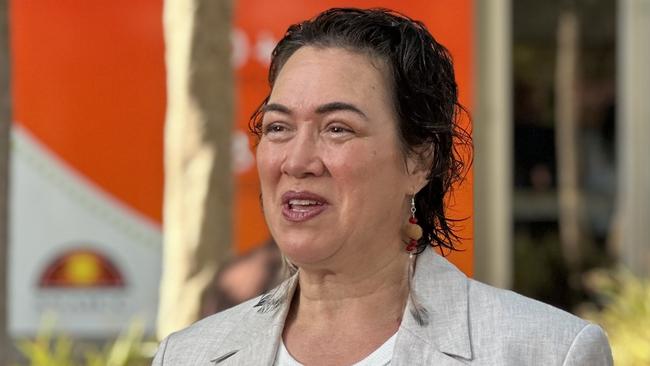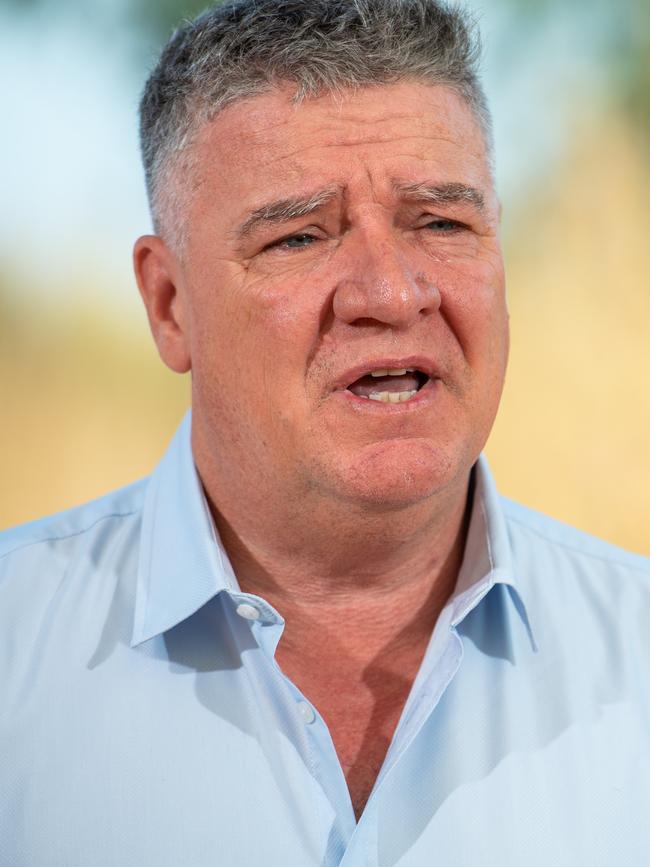Catherine Liddle says education is ‘key’ to breaking cycle of violence, crime in Alice Springs
Increasing accessibility to early education in Alice Springs – and the rest of the NT – will be key to preventing long-term law and order issues, an expert says. Here’s how the Territory’s learning leaders responded.
Education
Don't miss out on the headlines from Education. Followed categories will be added to My News.
Getting kids into schools and learning centres as early as possible is critical to preventing law and order issues in the future, an expert says.
SNAICC chief executive Catherine Liddle said early years programs could “turn the tide for communities like Alice Springs”.
“Getting the early years right can break cycles of poverty and violence,” Ms Liddle said.
“Access means not only having a physical space, but removing barriers such as cost and workforce.
“Aboriginal-community controlled early childhood and family centres provide holistic, wraparound services that support the whole family.”

The Arrernte-Luritja woman said “punitive approaches” such as the current curfew in the Alice Springs CBD was not a sustainable solution for community or child safety.
She said children with access to high-quality, culturally safe education usually had fewer interactions with the justice system.
Having partnered with the Thrive by Five campaign, Ms Liddle called on the NT and federal governments to “urgently set up a child and family support hub” for kids aged five and under.
She also called on the governments to connect families to primary and high school education, accommodation, therapeutic care, finance, employment, return to country, Centrelink and the Department of Social Services.


Education Minister Mark Monaghan and Opposition Education Spokeswoman Jo Hersey both agreed learning was the key to “putting our young people on the right path”.
But each had differing ideas of how to increase school engagement.
Mr Monaghan said programs such as Families as First Teachers helped bridge some access gaps with 55 sites in the Territory and a “record” 1554 enrolments at the start of 2024.
He also said it was important to show students where continued learning could take them.
“As a child moves throughout their schooling life, it is vital they have access to pathways to employment regardless of where they live,” he said.
“This is why the Lawler Labor Government invested over $13 million alone in Budget 24 to deliver more Vocational Education Training (VET) opportunities which saw 2,126 students enrol in VET courses, 820 of those students being Aboriginal, with this number only set to increase as new trade training centres including Tjuwanpa and Katherine.”
Territory Families Minister Ngaree Ah Kit also announced the opening of the Holtze Residential Youth Justice Facility last week.
The facility serves as an alternative to detention, where children can learn employable skills while serving time.
Meanwhile, Mrs Hersey said it was important to focus on physically getting kids to school with the help of truancy officers and school-based constables.
“Truancy officers will work with schools to enforce attendance and this program will hold parents responsible when their kids skip school,” she said.
“This will ensure we keep kids on track and hold parents to account.”
Mrs Hersey said the NT had some of the “worst” educational outcomes in the nation, with attendance on an overall decline.
Productivity Commission data shows attendance increased slightly in 2023, but has been steadily falling since 2015.
But she said crime itself was preventing kids from accessing safe schooling, with 209 school break-ins recorded between July 1, 2023, and March 31 this year.
“You cannot fix results and attendance if teachers, staff and students do not feel safe in school environments,” she said.
“Under the CLP, youth justice will be part of corrections and Territory Families will solely focus on strengthening families and the safety of our kids.”




